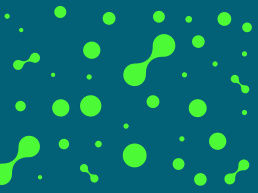In the October 2023 edition of the FLAD Translation Program, six works were selected, whose translation from English to Portuguese and from Portuguese to English will be supported by FLAD. Among them are books by Maria Emanuel Albergaria, Louise Glück and Saidiya Hartman.
In October, FLAD held a new edition of the program for translations of literary works. The goal is to support national publishers, helping them to have acess to works by American authors who would not otherwise reach Portuguese bookstores, and promote Portuguese authors in the United States.
In this edition, six works were chosen, proposed by several publishers, whose translation into Portuguese and English will now be supported by FLAD.
This is a regular contest, which takes place twice a year. The next edition will take place between 1 and 31 May 2024.
Selected works:
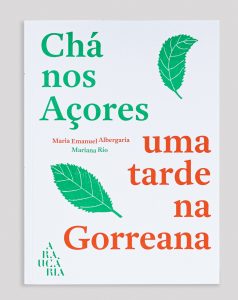
Book: Chá nos Açores. Uma tarde na Gorreana
Author: Maria Emanuel Albergaria and Mariana Rio
Publisher: Araucária Edições
Summary: The book tells the story of Rita, a girl who spends an afternoon at the Gorreana Tea factory, where reality and dreams mix, where characters from different times and places appear to talk about tea, the world and the island of São Miguel, its origins, how it is produced, etc. Mariana Rio’s illustrations complement and expand the text, enriching it and opening the way to dreams and a journey that goes beyond formal knowledge. The information notes accompanying the story refer to archival photographs and an in-depth contextualization of the tale. Daniel Blaufuks’ photographs show what the factory looks like today. Tea labels are a journey through the time and work of a factory. A book with multiple layers that will interest new, adults, curious, lovers of tea, the Azores and books… And that’s not all!
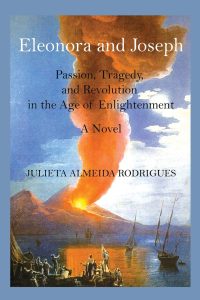 Book: Eleonora and Joseph: Passion, Tragedy, and Revolution in the Age of Enlightenment
Book: Eleonora and Joseph: Passion, Tragedy, and Revolution in the Age of Enlightenment
Author: Julieta Almeida Rodrigues
Publisher: Edições Almedina, S.A. – Minotauro
Summary: An enticing take on the Enlightenment set in 18th century Naples and the newly minted United States, as seen through the lens of two powerful historical figures: Eleonora Fonseca Pimentel, who imagined and fought for a Republic inspired by the French Revolution, and Joseph Correia de Serra, a diplomat and internationally recognized naturalist. Imprisoned in 1799 after the return of the Monarchy, and while awaiting her sentencing, Eleonora writes a memoir about Joseph, the adolescent lover who abandoned her. Joseph as an adult, accidentally finds Eleonora’s manuscript in Thomas Jefferson’s library while visiting Monticello.
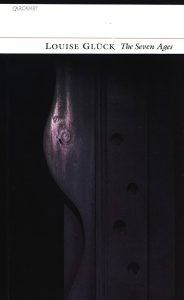
Book: The Seven Ages
Author: Louise Glück
Publisher: Relógio D’Água Editores
Synopsis: “The Seven Ages” is Gluck’s ninth book, one of her strangest and certainly her most bold. In it – like William Blake’s mystical Thel – she gazes down at her own death and in so doing forces endless superimpositions of the possible on the impossible. Her act at once defies and embraces the inevitable and is finally mimetic. Over and over, at each wild leap and transformation, flames shoot up the reader’s spine. In an essay she writes, “one of the revelations of art is the discovery of a tone or perspective at once wholly unexpected and wholly true to a set of materials”. This truth to materials -language, occasion, antecedent – is the proof of a poem.
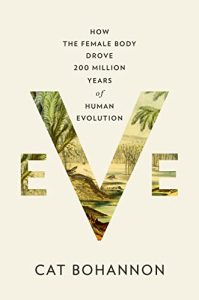 Book: Eve: How the Female Body Drove 200 Million Years of Human Evolution
Book: Eve: How the Female Body Drove 200 Million Years of Human Evolution
Author: Cat Bohannon
Publisher: Penguin Random House Grupo Editorial, Unipessoal, Lda.
Synopsis: How did the female body drive 200 million years of human evolution? • Why do women live longer than men? • Why are women more likely to get Alzheimer’s? • Why do girls score better at every academic subject than boys until puberty, when suddenly their scores plummet? • Is sexism useful for evolution? • And why, seriously why, do women have to sweat through our sheets every night when we hit menopause? These questions are producing some truly exciting science – and in Eve, with boundless curiosity and sharp wit, Cat Bohannon covers the past 200 million years to explain the specific science behind the development of the female sex: “We need a kind of user’s manual for the female mammal. A no-nonsense, hard-hitting, seriously researched (but readable) account of what we are. How female bodies evolved, how they work, what it really means to biologically be a woman. Something that would rewrite the story of womanhood. This book is that story. We have to put the female body in the picture. If we don’t, it’s not just feminism that’s compromised. Modern medicine, neurobiology, paleoanthropology, even evolutionary biology all take a hit when we ignore the fact that half of us have breasts. So it’s time we talk about breasts. Breasts, and blood, and fat, and vaginas, and wombs—all of it. How they came to be and how we live with them now, no matter how weird or hilarious the truth is.”
 Book: The Identitarians: The Movement Against Globalism And Islam In Europe
Book: The Identitarians: The Movement Against Globalism And Islam In Europe
Author: José Pedro Zúquete
Publisher: Edições 70, a seal of Edições Almedina
Synopsis: The Identitarians are a rapidly growing ethnocultural transnational movement that, in diverse forms, originated in France and Italy and has spread into southern, central, and northern Europe. This timely and important study presents the first book-length analysis of this anti-globalist and anti-Islamic movement.
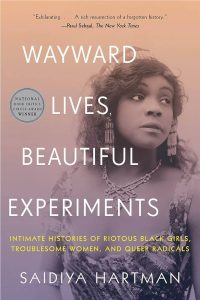 Book: Wayward Lives, Beautiful Experiments
Book: Wayward Lives, Beautiful Experiments
Author: Saidiya Hartman
Publisher: Orfeu Negro Unipessoal Lda.
Synopsis: In Wayward Lives, Beautiful Experiments, Saidiya Hartman examines the revolution of black intimate life that unfolded in Philadelphia and New York at the beginning of the twentieth century. Free love, common-law and transient marriages, serial partners, cohabitation outside of wedlock, queer relations, and single motherhood were among the sweeping changes that altered the character of everyday life and challenged traditional Victorian beliefs about courtship, love, and marriage. Hartman narrates the story of this radical social transformation against the grain of the prevailing century-old argument about the crisis of the black family. Beautifully written and deeply researched, Wayward Lives recreates the experience of young urban black women who desired an existence qualitatively different than the one that had been scripted for them―domestic service, second-class citizenship, and respectable poverty―and whose intimate revolution was apprehended as crime and pathology. For the first time, young black women are credited with shaping a cultural movement that transformed the urban landscape. Through a melding of history and literary imagination, Wayward Lives recovers their radical aspirations and insurgent desires.
Related Posts
23 de July, 2024
Inês Thomas Almeida next FLAD/Saab Visiting Professor at UMass Lowell
Musicologist, she holds a PhD in…
3 de July, 2024
B+S Bispo D. Manuel Ferreira Cabral School, from Madeira, wins Atlântico Junior Award
Students win with a project to create…



